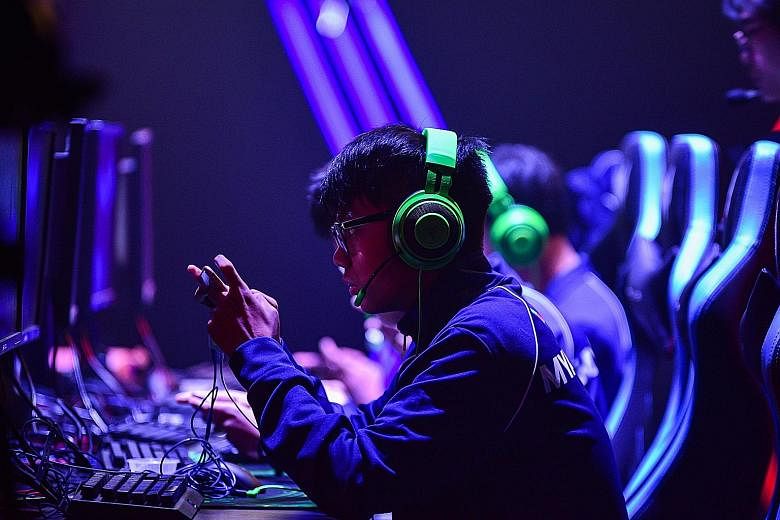At November's Mobile Legends Bang Bang World Championship at the Axiata Arena in Kuala Lumpur, doubts raced through Bjorn Ong's mind as his team Evos Legends battled for the title.
The Singaporean player-coach has become increasingly exposed to pressure-packed environments over his 15-year career and he believes e-sports players, like all athletes, should have mental health support.
An ongoing research project led by Dr Hong Hee Jung, a sports psychology professor from the University of Stirling in Scotland, has found e-sports players calling for more psychological support.
Although the anxiety and stress that come with performing at competitions may be similar to what athletes in traditional sports experience, e-sports players do not enjoy as much psychological backing with the sport still largely in its infancy.
Some of the world's top e-sports players train up to 80 hours a week, with time spent on marathon sessions that end up taking physical and mental tolls, said a report by digital news platform Quartz. A documentary by CBS News said that this "grind" is forcing many professional gamers to retire by their mid-20s.
Dr Hong, who has interviewed 40 e-sports competitors in Asia and Europe as part of the research project commissioned by the International Olympic Committee, said: "E-sports players perform at very high level... They didn't say there is a lack of support for them, but that if there is that type of support, it will be very helpful for them."
The professor was speaking at Razer's headquarters yesterday and the gaming company has been lobbying for e-sports' inclusion in the Olympics and is assisting in the research project.
However, Dr Hong stressed the results are not conclusive as the project, which started last September, is still a work in progress.
E-sports players are facing numerous challenges, including online abuse. Female gamers, in particular, are on the end of misogynistic comments as they bid to gain inclusion in a male-dominated sport.
At the Fortnite World Cup last August, all 100 finalists were men.
But Dr Hong insisted that this is a prevalent social issue not exclusive to e-sports. Media training is important as many in the industry are teenagers, she added. The reigning Fortnite World Cup winner is 17-year-old Kyle "Bugha" Giersdorf.
Support from parents is also crucial for these young e-sports participants, but from Dr Hong's findings, parents also tend to be critical of their children's e-sports pursuits.
She said: "At 15 or 16, they need support from the parents because it's quite difficult for the young players to deal with their career."
Locally, a spokesman from the Singapore Esports Association "acknowledged that extended periods of play, like any other sport, may have physical or mental repercussions on e-sports athletes".
SEA Games athletes took up a sports science course, which covered topics including hand-eye coordination, counselling and guidance on training methodology.


